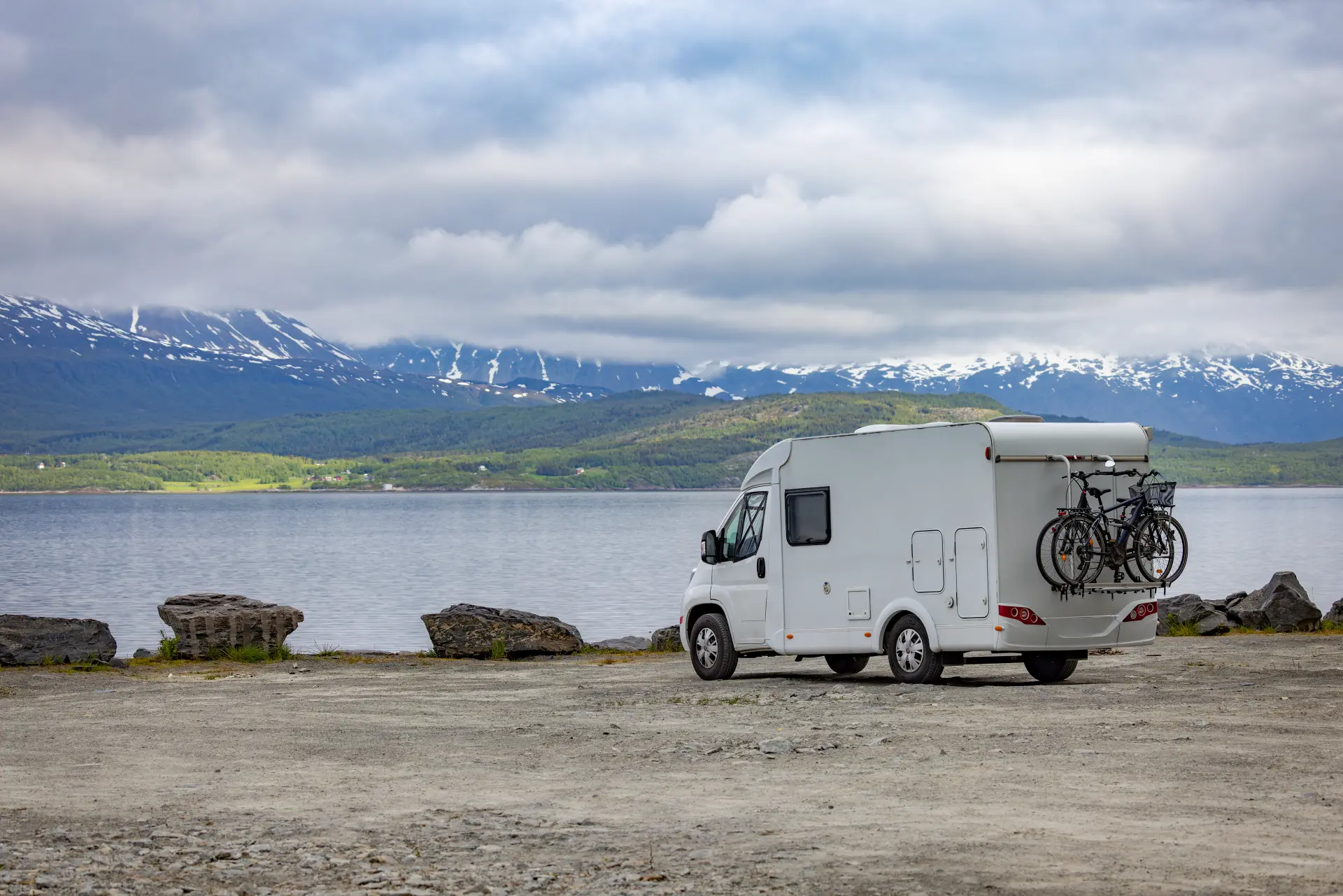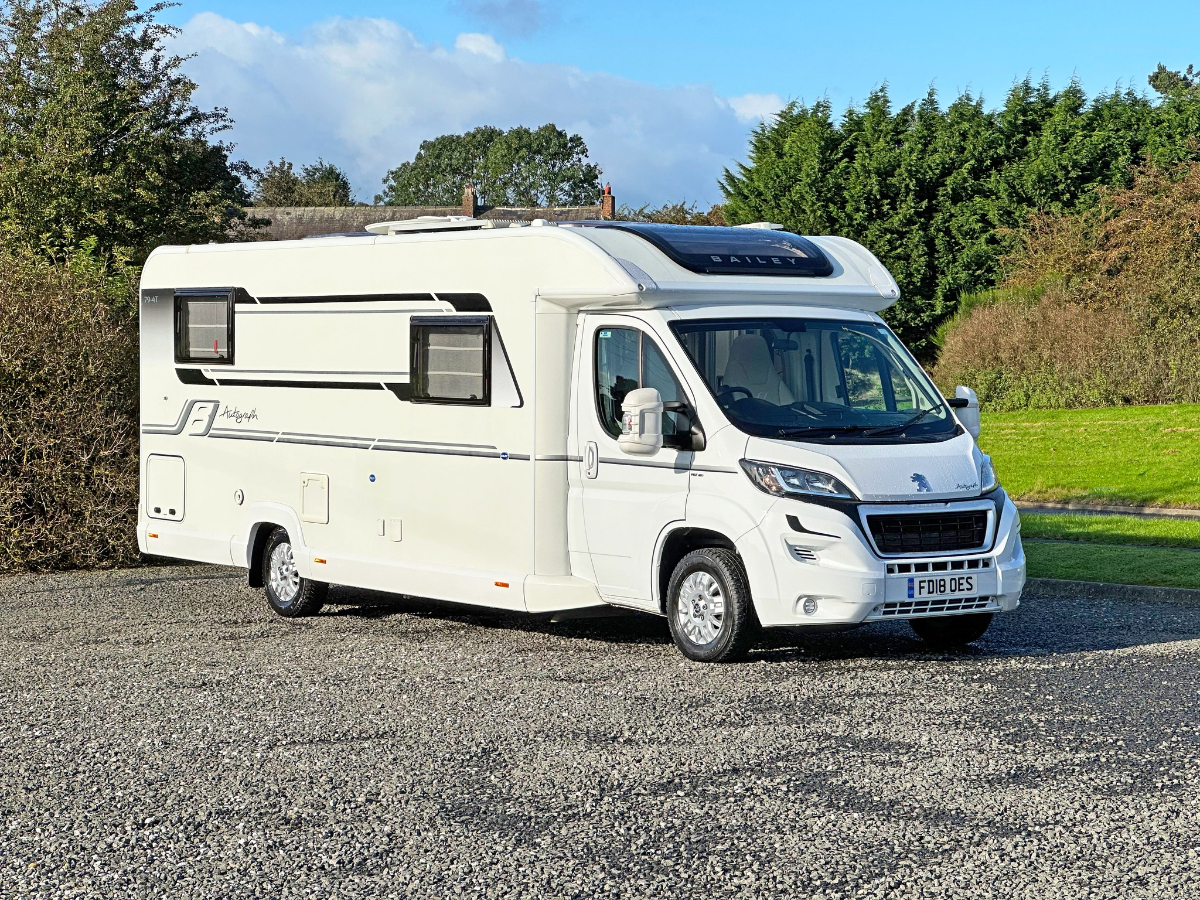Embarking on the journey to becoming a motorhome owner? In this guide, we'll explore crucial insights for first-time buyers, addressing questions about maintenance, what to look for when purchasing, servicing schedules, running costs, and the fuel efficiency of these mobile abodes
Are motorhomes high maintenance?
Motorhomes, just like any other vehicle, require a certain degree of upkeep and care. The level of maintenance differs significantly from standard vehicles because of their unique combination of vehicular and domestic features.
This distinctiveness can often leave those who are new to the world of motorhomes wondering, "Are they high in maintenance?" The answer to this question may vary according to different motorhome models and how they're used.
In general, motorhomes aren't considered high-maintenance vehicles. However, they do need continual care and attention to ensure their longevity and safety on the road. This includes regular checks on the electrical, gas, and water systems, which are essential to the motorhome's domestic components.
Another critical aspect is the consistent inspection of the tyres. The vehicle's tyres are subjected to different conditions on the road, thus requiring more frequent checks for wear and tear compared to other parts of the vehicle. Equally important is maintaining both the exterior and interior areas of the motorhome, ensuring it is not only functional but also aesthetically pleasing.
With a well-maintained motorhome, buyers can expect to enjoy its services for a substantially extended period, proving their impressive resilience and durability. A motorhome's lifespan can easily exceed many years if it receives appropriate and regular care, making it a worthwhile long-term investment for many. Despite the maintenance required, the benefits of owning a motorhome often outweigh any potential drawbacks. So, while they may require consistent care, motorhomes are not necessarily high maintenance.
What to look out for when buying a motorhome?
Purchasing a motorhome, especially for first-time buyers, can be a distinctly overwhelming endeavour. It's essential to know what to look out for to ensure a good investment. There are three principal areas to focus on when making that leap into the world of motorhomes: the exterior, the interior, and the motorhome's history.
When examining the motorhome's exterior, the key is to check for any significant damages, for instance, deep scratches or dents. Additionally, look out for any signs of rust or leaks, as these may indicate underlying structural issues that could be expensive to repair later on. Another vital element to look at is the condition of the tyres. The tyres need to be in good shape for the safety of the passengers and to avoid any unnecessary expenditures.
The interior is equally important and a good state of the interior can indicate if the motorhome was well maintained by its previous owners. When you step inside, watch out for any signs of damp or mould. These could point towards leaks, poor ventilation, or a lack of regular upkeep, all of which are red flags.

Also, ensure the appliances are functioning as they should. Check everything - the cooker, fridge, heating system, and lights. The upholstery should also be in decent shape to ensure your motorhome provides a comfortable living environment.
Lastly, and perhaps most importantly, take a thorough look at the motorhome's history. The number of previous owners, servicing history, and knowledge of any involvement in accidents are all crucial pieces of information. This will give an indelible insight into how the motorhome was maintained and any potential issues that you may have to face.
Remember, any hidden issues can be costly to fix later, making this in-depth check not just beneficial, but vital within the buying process. Investing adequate effort into these areas while buying your first motorhome ensures that you make an informed decision and avoid potential troubles down the line. Once you've done your due diligence, you'll be well on your way to exploring the freedom of the open road with your motorhome.

How often do motorhomes need servicing?
Just like any regular vehicle, motorhomes require routine servicing to ensure that they run smoothly and efficiently. Industry guidelines suggest that a motorhome should receive a service either once every year or after the vehicle has covered 10,000 miles, depending on which comes first.
Servicing is a critical part of maintaining any vehicle. It ensures optimal performance and enhances the safety of the vehicle and its occupants. With a motorhome, regular servicing can also extend the lifespan of your vehicle.
This can easily be achieved by carrying out regular maintenance checks on your motorhome. A well-maintained motorhome will be in the best condition to handle the rigours of life on the road.
Apart from improving the performance of your motorhome, regular servicing is crucial in preventing any minor issues from escalating into serious ones. This means you can avoid unexpected breakdowns or problems that may disrupt your travel plans. It can be truly disheartening when unforeseen vehicle problems interrupt your much-awaited motorhome trip.
Routine servicing may initially seem like a hassle, but consider it a small investment towards long-term gains. It helps identify any flaws or problems that may have occurred due to wear and tear, thereby giving you the opportunity to rectify them before they get worse.
Are motorhomes expensive to run?
The debate regarding the running costs of motorhomes primarily revolves around the pattern of usage and level of upkeep. It's important to bear in mind that running a motorhome entails several expenditures. These include the initial purchase price of the unit, along with ongoing costs such as insurance, road tax, servicing and the cost of fuel.
Though the mention of these expenses alone may seem intimidating, prudent planning and budgeting can render these costs more manageable. If you intend to make maximum use of your motorhome, for instance, embarking on frequent or long-distance trips, you can expect your spending on factors such as fuel and servicing to go up. On the other hand, if your motorhome is used less frequently, these costs will undoubtedly be reduced.
Another significant consideration is the upkeep of the motorhome. Regular maintenance can seem costly in the short term, but neglecting it could result in even higher costs in the long run due to unscheduled repairs and possibly decreased resale value.
Therefore, adopting a proactive approach towards maintenance is a key aspect of managing motorhome costs. While these costs may seem significant, remember that owning and running a motorhome provides a unique way to explore and experience different places. In the end, you're not just purchasing a vehicle, but an opportunity for incredible adventures. Remember, preparedness is key.
Careful budgeting can guide you effectively in managing these expenses, ensuring that your motorhome remains a symbol of wonderful journeys for many years to come.
Do motorhomes use a lot of petrol?
Motorhomes, with their size and weight, are not particularly known for their fuel efficiency. The size and weight of a motorhome play a crucial role in dictating how much fuel it is likely to consume. As a general guide, smaller motorhome models might achieve somewhere around 20-25 miles per gallon (mpg), which may seem reasonable for such a considerable vehicle.
However, larger, more luxurious motorhomes might only manage to reach between 8-15 mpg. Therefore, the amount of fuel a motorhome consumes can depend largely on its design and features. Additionally, don't forget that your driving style can also influence the fuel consumption of your motorhome. If you're a driver who habitually speeds up and brakes hard, you'll find your motorhome will consume more fuel. Applying smoother accelerator and brake techniques can drastically enhance the miles that you cover for each gallon of fuel.

Moreover, weather conditions can significantly impact the fuel efficiency of a motorhome. For instance, driving in conditions of harsh winds or rain can reduce the aerodynamics of the vehicle, meaning it has to work harder and so uses more fuel. Ensuring you check and adjust tyre pressure to the correct levels for varying weather conditions will also offer a more fuel-economic drive. Despite the heavier fuel consumption, the benefits that a motorhome offers often outweigh this drawback.
Motorhomes provide an incomparable level of freedom - you can take them virtually anywhere with sufficient roads, and you have your accommodation on wheels. This level of mobility and versatility is rarely matched by any other mode of transport or holidaying. Furthermore, this flexibility extends to your expenses too. Though you may spend more on fuel, you save significantly on hotel bookings and dining out.
Located in the vibrant city of Newcastle upon Tyne, our motorhome dealership offers a range of services to cater to all your motorhome needs. Whether you're in the market to sell motorhomes, browse new motorhomes, or explore used motorhomes and campervans, we have the expertise to assist you.





